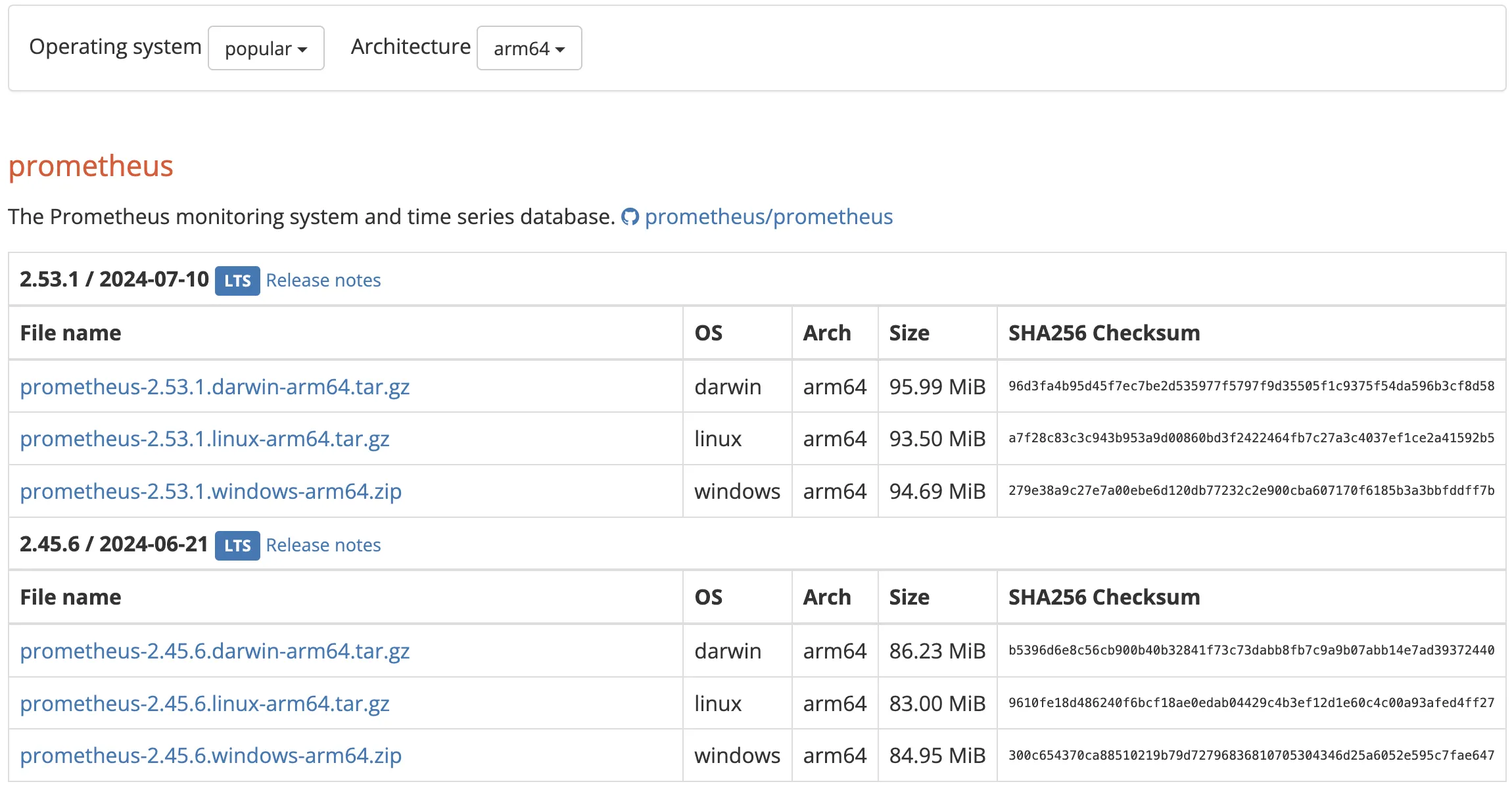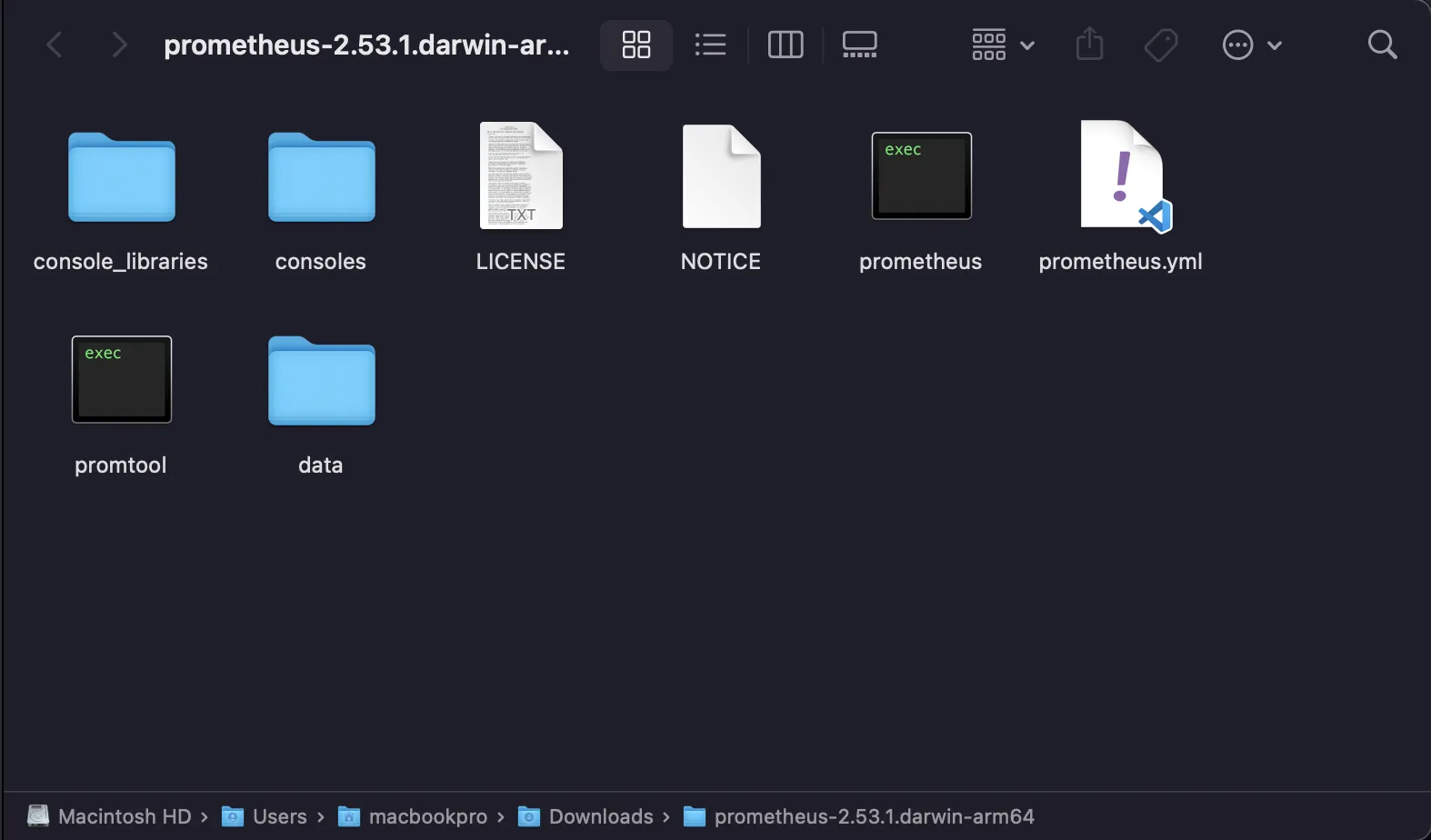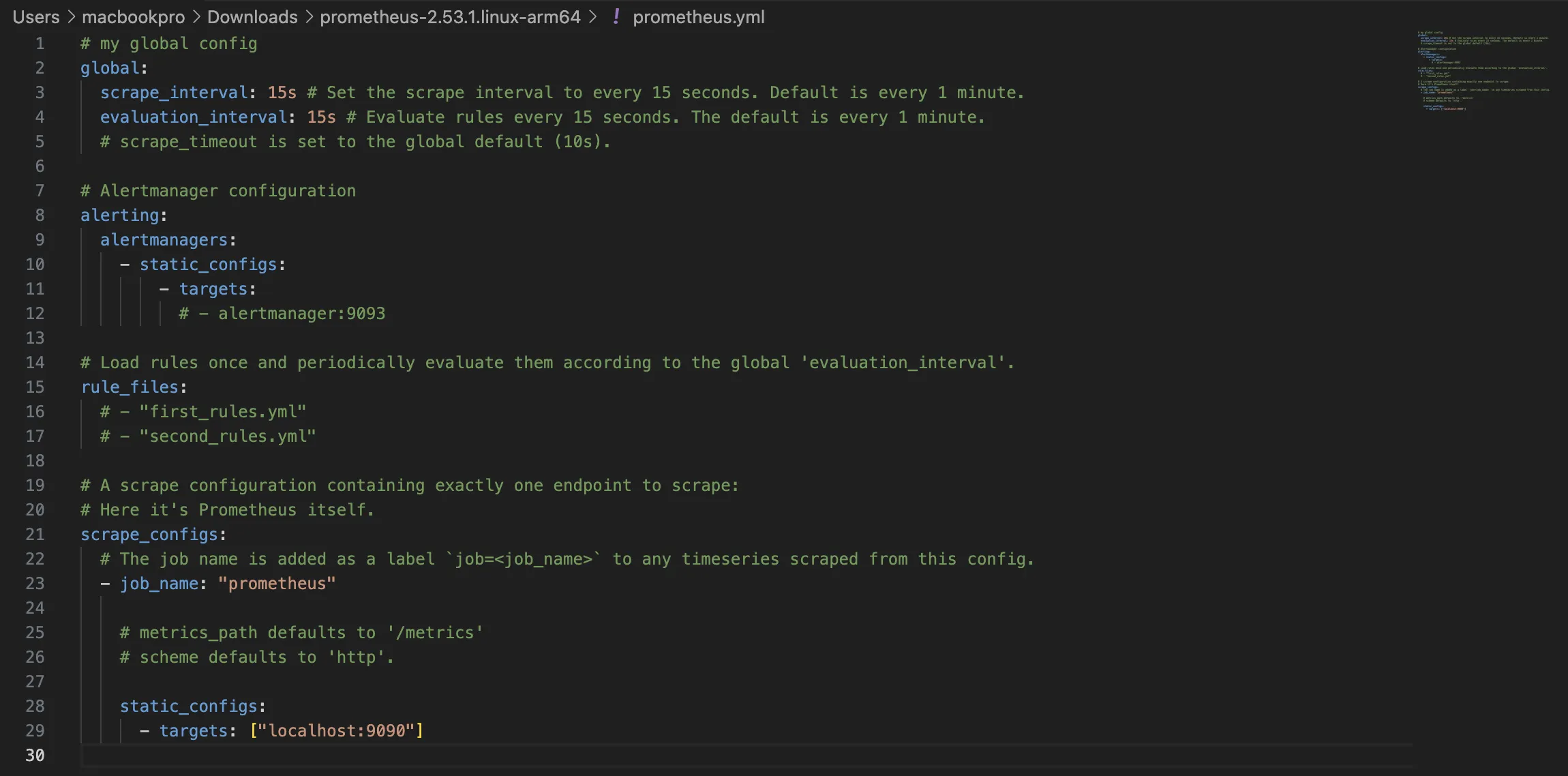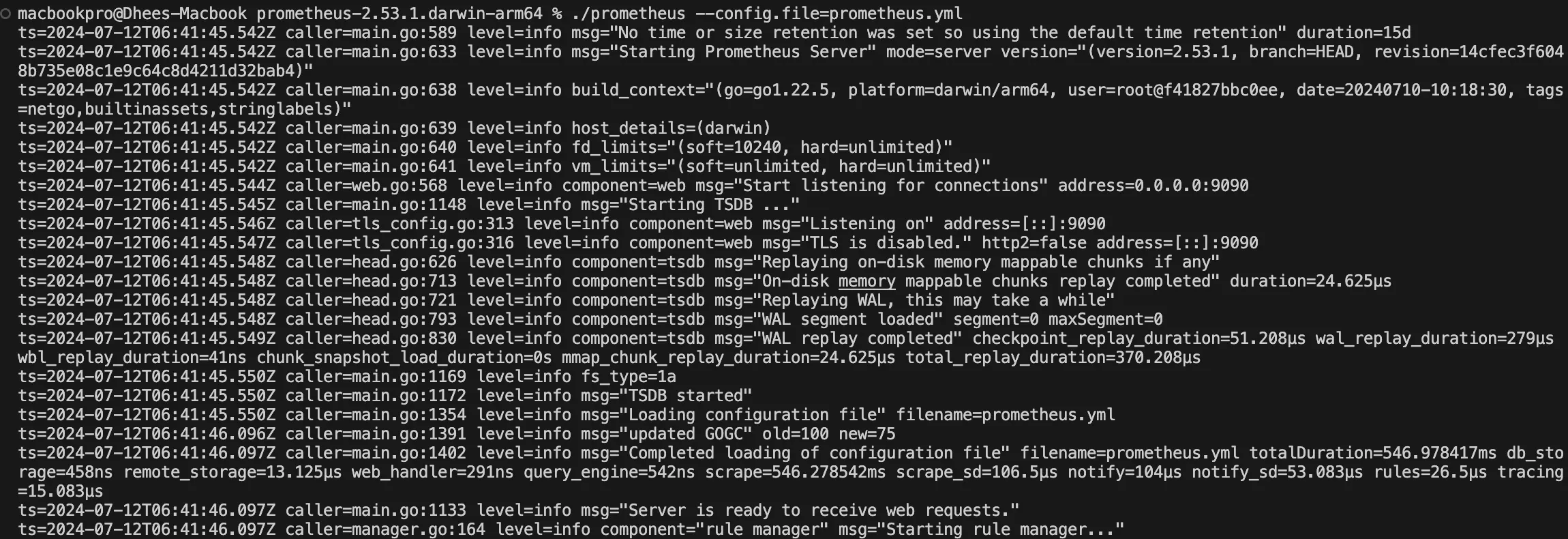What is Prometheus used for in DevOps?
Prometheus is primarily used in DevOps for its monitoring and alerting capabilities. It equips DevOps teams with real-time insights into system health and performance, enabling proactive identification and troubleshooting of issues. It also helps DevOps teams optimize resource utilization, and make informed decisions to enhance the overall reliability and efficiency of systems.
What is Prometheus?
Prometheus is an open-source monitoring and alerting toolkit originally developed at SoundCloud in 2012. Designed with a focus on reliability and scalability, Prometheus has quickly become a staple in the DevOps ecosystem. It offers powerful features that cater to the needs of dynamic, cloud-native environments, making it an indispensable tool for monitoring complex infrastructures and applications.
Key features of Prometheus
Prometheus boasts several key features and components that make it stand out:
- Time-Series Data Model: Prometheus stores data as time-series, a sequence of values with timestamps. This allows for efficient analysis of trends and patterns over time.
- Pull-Based Model: Prometheus actively "pulls" metrics from target systems. This approach is well-suited for cloud-native environments where services may be ephemeral or behind firewalls.
- Service Discovery: Prometheus can automatically discover and monitor services in dynamic environments, such as Kubernetes clusters.
- Powerful Query Language: PromQL (Prometheus Query Language) allows you to slice and dice data, perform calculations, and create complex visualizations.
- Alerting: Prometheus integrates with alerting systems to notify you when specific conditions are met, such as high CPU usage or low disk space.
Why Prometheus is popular in DevOps
Prometheus has gained immense popularity in the DevOps world due to its unique combination of features:
Open-Source Nature
As an open-source project, Prometheus benefits from a large and active community. This community-driven development ensures continuous improvements, a wealth of integrations, and extensive documentation. The open-source model also means there are no licensing costs, making Prometheus an attractive option for organizations of all sizes.
Flexibility and Scalability
Prometheus is designed to be highly flexible and scalable. Its modular architecture allows it to integrate seamlessly with a wide range of systems and services. Prometheus can handle high cardinality and large volumes of metrics, making it suitable for both small-scale deployments and large, complex infrastructures.
Quick Start with Prometheus
This quick start guide will help you get Prometheus up and running in a few simple steps.
- Download Prometheus
To download Prometheus on your system, visit the Prometheus download page. Set your system architecture and identify the appropriate package for your operating system (Linux, macOS, Windows). Click on the download link for the latest stable release.

- Configure
prometheus.ymlfile
After downloading Prometheus, extract the tarball downloaded file. You'll find a file named prometheus.yml in the extracted directory.

Prometheus uses a configuration file named prometheus.yml to specify which targets to monitor and how to scrape them. Open prometheus.yml in a text editor.

In the prometheus.yml file, you will see that Prometheus is configured to scrape metrics from itself. You can add other scrape configurations for Prometheus to scrape metrics from different targets on your system.
- Start Prometheus server
Navigate to the directory where you extracted Prometheus and execute the following command to start Prometheus:
./prometheus --config.file=prometheus.yml
This command will start Prometheus and use the specified configuration file to determine which targets to scrape.

- Access the Prometheus UI
Once Prometheus has started, in your browser, visit localhost:9090 to access the Prometheus UI:


Use Cases of Prometheus in DevOps
Prometheus excels in various use cases within the DevOps ecosystem:
Application Monitoring
- Tracking Request Latency, Error Rates, and Throughput: Prometheus helps monitor the performance and reliability of applications by tracking key metrics like request latency, error rates, and throughput. This enables teams to identify and address issues before they impact users.
- Monitoring Resource Usage (CPU, Memory, Disk): Prometheus collects detailed metrics on resource usage, allowing teams to optimize application performance and resource allocation.
- Alerting on Anomalies and Performance Degradation: Prometheus' alerting capabilities help detect anomalies and performance issues in real-time, enabling prompt remediation.
Infrastructure Monitoring
- Monitoring Servers, Databases, and Network Devices: Prometheus can monitor the health and performance of various infrastructure components, including servers, databases, and network devices.
- Tracking System Metrics (Load Average, Disk Space): Detailed system metrics help ensure the stability and performance of the underlying infrastructure.
- Alerting on Hardware Failures and Resource Exhaustion: Prometheus can alert teams to hardware failures and resource exhaustion, allowing for timely intervention.
Kubernetes Monitoring
- Collecting Metrics from Kubernetes Objects (Pods, Nodes, Services): Prometheus integrates seamlessly with Kubernetes, collecting metrics from various objects and providing insights into cluster health and performance.
- Monitoring Cluster Health and Resource Utilization: Detailed metrics help ensure the efficient operation of Kubernetes clusters.
- Integrating with Kubernetes Service Discovery: Prometheus automatically discovers and monitors new services as they are deployed, ensuring comprehensive coverage.
Database Monitoring
- Monitoring Database Performance Metrics: Prometheus tracks various database performance metrics, providing insights into query performance, connection counts, and overall database health.
- Tracking Query Performance, Connection Counts, and More: Detailed monitoring helps optimize database performance and identify potential issues.
Service Discovery and Monitoring
- Automatically Discovering Services in Dynamic Environments: Prometheus' service discovery capabilities ensure that it can automatically detect and monitor new services as they are deployed.
- Monitoring Microservices Architectures: Prometheus is well-suited for monitoring complex microservices architectures, providing visibility into the performance and health of individual services.
Conclusion
Prometheus is utilized in DevOps for its robust monitoring and alerting capabilities, empowering teams to maintain system health and performance effectively.
Key takeaways:
- Prometheus provides real-time insights into system health enable proactive issue identification and troubleshooting.
- It provides information on resource utilization for better optimization which can enhance operational efficiency.
- It is used in making informed decisions to improve overall system reliability.
